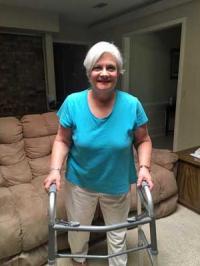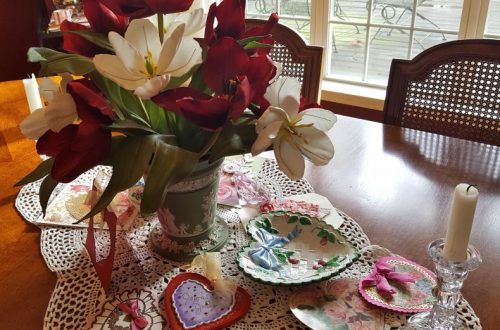Are We Writing A Great Story with Our Lives?-Donald Miller (Blue Like Jazz) offers help
When the credits roll, will people shrug and think my story was kind of boring? Will they think your story was great, one that inspired their own? How might we intentionally write a great story into our lives?
If you write a story about your life and it winds up selling over a million copies, you just might have two guys show up at your front door wanting to make a movie out it. Such was the case with Donald Miller.
When the credits roll, will people shrug and think my story was kind of boring? Will they think your story was great, one that inspired their own? How might we intentionally write a great story into our lives?
If you write a story about your life and it winds up selling over a million copies, you just might have two guys show up at your front door wanting to make a movie out it. Such was the case with Donald Miller.
In our weekly interview I asked Don if he lit up at the suggestion or cringed. "Definitely cringed," he responded.
As it turned out, the challenge for the two screenwriters was one we are all too familiar with: Don’s life was too boring for a movie. So, together with Steve and Ben, Don "adapted" his life to make the fictional Don Miller’s life more compelling than the real Don Miller’s. In the process of writing a more engaging story for his fictional life, Don learned something about writing a more meaningful story into his real life, wisdom he shares in his new book: A Million Miles in a Thousand Years: What I learned while editing my life. And this guy can write.
What Don learned is what we all know instinctively: what makes a story meaningful is…conflict. Once I took a story-writing workshop with T. Davis Bunn. He said that every story can be reduced to a simple sequence: A guy climbs a tree. Another guy comes along and starts throwing rocks at the guy in the tree. The guy in the tree comes down and beats the stuffing out of the rock-throwing guy. Then they both walk away. The end.
Don opens his new book, "If you watched a movie about a guy who wanted a Volvo and worked for years to get it, you wouldn’t cry at the end when he drove off the lot, testing the windshield wipers. You wouldn’t tell your friends you saw a beautiful movie or put a record on to think about the story you’d seen. Nobody cries at the end of a movie about a guy who wants a Volvo…But we spend years actually living those stories, and expect our lives to feel meaningful."
A meaningful story, Don learns, is "a character who wants something and has to overcome obstacles to get it." And in the wanting and overcoming the character is transformed. Transformation is the point of a story arc and the point of our lives, Seinfeld not withstanding.
What a grand irony: the more conflict, the more opportunity for meaning. And yet we, or at least I, do not welcome conflict. I want the bubble of safety and comfort. Don purposes to get out of his bubble and shares a story that inspires my own.
I asked Don if he thought that there was objective meaning in life. He said no; he thinks that one person might find it in a quest to discover beauty in nature, another in a romantic relationship and another in the face of her new-born baby.
About an hour after the interview I thought of my missed follow-up question: "But Don, if you say that spending years of your life in pursuit of a Volvo is not a very meaningful story, but pursuing nature’s beauty, romantic love and loving your children may well constitute a more meaningful story, then aren’t you pointing to some kind of objective meaning?" Perhaps I’m misunderstanding the way his book seems to set up the answer, or perhaps, in his tenderness to our postmodern culture, where he has such an effective ministry, he would prefer not to make an unwelcome claim to knowledge about objective meaning.
However, the way Don distinguishes between more and less meaningful stories seems to presuppose a reality or intrinsic experience of meaningfulness. As I've thought about wrapping words around what locates more meaning in beauty and relationships, this is what I believe: If our stories are moving toward God’s Larger Story of redemption, his character, what he treasures, then they are objectively more meaningful. The more we discover and desire the kingdom and glory of God—his love, goodness, mercy, justice—and overcome conflict to get it or bring it into our real life stories—the more we are transformed "from one degree of glory to another" (2 Cor 3:18), and our stories become more meaningful. We might create subjective meaning by living for the sports story or the HGTV story, but my experience has been that smaller stories don’t yield the same results.
When our longings and desires have little connection to God’s, life can become boring because so little that really matters is at stake. And when we grasp at comfort and safety, well…no conflict or tension + no struggle to pursue deeply meaningful hopes or dreams= no Larger Story = boredom.
Maybe you’ve found the love of our life, your dream home. You’ve started your family. Now what? Perhaps God is whispering to you, "Your vacations, your clothes, your interesting job, your friends, even living in a small story of being busy, busy in church—it’s never as meaningful as life lived full of risk, embracing conflict in pursuit of me and the people and purposes that I love."
What about you…do you think there is real, objective meaning in life? If so, how would you describe it?
(Donald Miller will be speaking at Lead Now Dallas at Irving Bible Church Nov 5-7 and in Fort Worth on Nov 8th.)


